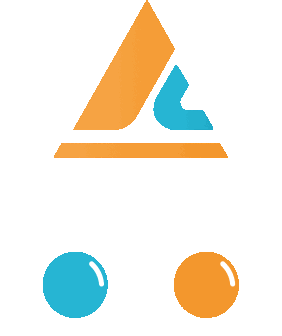
Close

BCoder Castle – Best Software App & Web Design Development Company 2023

Artificial intelligence or AI is a field of computer science that focuses on the creation of intelligent machines that can learn, reason, and solve problems like humans. It involves developing algorithms that process and analyze vast amounts of data to make informed decisions. AI has the potential to transform many industries, from healthcare and finance to transportation and education. It can help us better understand complex systems and make more accurate predictions, while also increasing efficiency and productivity.
However, AI’s impact on employment and privacy raises concerns, including the potential for bias and discrimination in decision-making algorithms. To fully harness the potential of AI for societal betterment, we must weigh both its benefits and risks as it continues to evolve.
Artificial intelligence (AI) has become a game-changer in business, providing new opportunities for efficiency, cost savings, and growth. The following are some of the top business applications of AI:
AI-powered chatbots & virtual assistants can provide 24/7 customer support, answer frequently asked questions, and resolve issues without human intervention.
AI can analyze customer data to create personalized marketing campaigns, optimize ad placements, and predict customer behavior.
AI can analyze sales data to predict future sales trends, optimize pricing strategies, and identify new revenue opportunities.
AI can analyze large amounts of data to detect and prevent fraud, saving businesses millions of dollars in losses.
AI can optimize supply chain operations by analyzing data on inventory levels, demand, and shipping routes to improve efficiency and reduce costs.
AI can help businesses find and recruit top talent, streamline HR processes, and improve employee engagement and retention.
AI can analyze sensor data from equipment and machinery to predict when maintenance is needed, reducing downtime and improving productivity.

AI Ethics is the study of moral and ethical issues related to artificial intelligence (AI). As AI becomes more ubiquitous, we must consider the ethical implications of its development and use. This includes issues such as privacy, bias, transparency, accountability, and the impact on employment.
Navigating these ethical considerations requires a multidisciplinary approach that involves experts from computer science, philosophy, law, and social sciences. It also requires collaboration between different stakeholders, including government, industry, academia, and civil society.
One of the key challenges in AI ethics is balancing the benefits of AI with its potential risks and negative consequences. For example, AI can advance healthcare, transportation, and other industries, but it can also perpetuate discrimination and inequality. To address these challenges, various frameworks and guidelines have been proposed to guide the development and deployment of AI. These include the principles of transparency, explainability, and accountability, including the development of ethical codes of conduct for AI developers & users.
Artificial Intelligence (AI) is transforming the future of work by automating tasks, augmenting human capabilities, and creating new types of jobs. AI-powered technologies are being used to improve productivity, efficiency, and accuracy in various industries. However, the rise of AI also raises concerns about job displacement, ethical considerations, and the need for reskilling and upskilling the workforce.
One of the most significant AI impacts on the future of work is automation. AI-powered tools and robots can replace human workers in repetitive and mundane tasks, leading to job losses in some industries. However, AI can enhance human capabilities by performing dangerous, tedious, or highly precise tasks, freeing workers to focus on more intricate and creative work.
Another impact of AI on the future of work is the creation of new jobs. AI-powered technologies are creating new roles in areas such as data science, machine learning, and natural language processing. These jobs require a combination of technical and soft skills, such as problem-solving, critical thinking, and communication.
The rise of AI also raises ethical considerations about the use of AI in the workplace. Concerns include the potential for bias in algorithms, the need for transparency and accountability, and the impact of AI on privacy and security.
In order to prepare the workforce for the future of work, organizations need to invest in reskilling and upskilling programs. To ensure AI is used responsibly and for society’s benefit, businesses and policymakers must collaborate to establish ethical guidelines.
Bcoder Castle is a professional technology company that offers expert solutions in the field of AI. With extensive knowledge and experience in the latest technologies and trends, we are well-equipped to help you with your AI project. Our team of experts can provide you with the right guidance and tools to create effective Artificial Intelligence solutions that meet your business requirements. From planning to implementation, we can provide you with comprehensive services that will help you succeed in the AI space. We are dedicated to delivering quality results and ensuring that our clients get the best value for their investments. With Bcoder Castle by your side, you can rest assured that your AI project is in capable hands.
Ans: AI is used in a wide range of applications, from personal assistants like Siri and Alexa to self-driving cars, facial recognition technology, and even predictive analytics for healthcare.
Ans: There are three main types of AI: narrow or weak AI, general or strong AI, and super AI. The purpose of narrow AI is to accomplish a specific task, whereas general AI can perform any intellectual task a human can perform. Super AI, which is currently only hypothetical, would surpass human intelligence and abilities.
Ans: Machine learning is a subset of AI that involves training algorithms to improve their performance on a particular task over time. AI encompasses a broader range of technologies that can include machine learning, as well as deep learning, natural language processing, and more.

